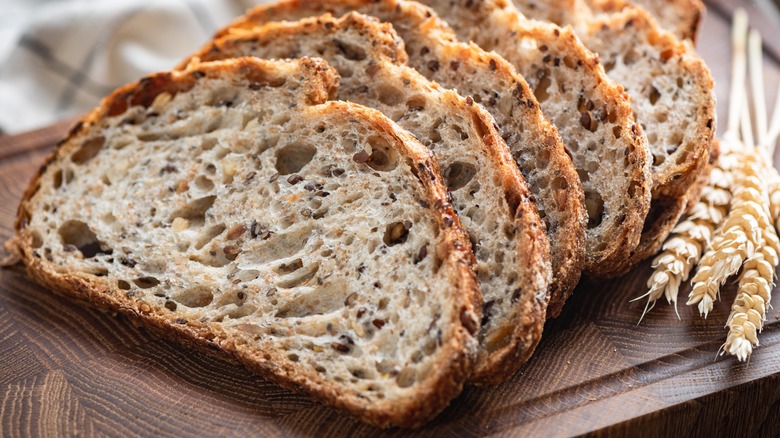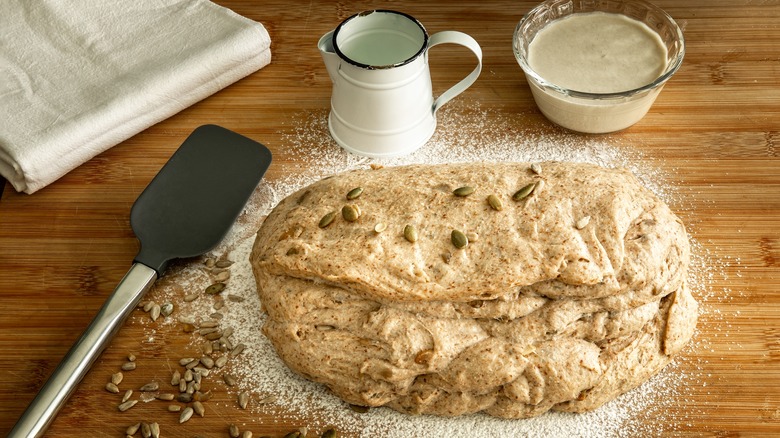Why You Should Think Twice Before Adding These 2 Seeds To Your Sourdough
A basic sourdough recipe can be immediately elevated by kneading all kinds of inclusions into the bread. From fruits and cheeses to nuts and seeds, sourdough can easily be customized to suit anyone's tastes. Even the dough itself can be made into different variations, such as chocolate sourdough.
However, adding to sourdough can be a slippery slope. Ingredients like chia seeds and linseeds can dry out sourdough due to the fact that they absorb water. Dry sourdough results in a firmer and smaller final result. This can be countered by adding more water to the dough, but this can also make the dough-making process more difficult as a whole.
Even bakers who are familiar with making sourdough can hit roadblocks when adding seeds to their dough. Just like any other step in the sourdough-making process, adding seeds requires some extra care and patience. It is all worth it in the end though, as the addition of seeds not only adds to the bread's flavor but also makes the bread beautifully speckled and delectably textured throughout.
Adding seeds to sourdough: Dos and don'ts
When adding seeds to sourdough, it is important to remember that the amount of seeds added to the dough will directly affect the density of the bread. The amount of seeds to add is mostly up to personal preference. However, it is recommended that seeds take up less than 20% of the total amount of dough.
There are two major methods for adding seeds to sourdough. Seeds can be added to sourdough starter at the same time as flour and water. This method helps incorporate the seeds quickly. The second method is to add the seeds after the flour and water has been mixed into the sourdough starter. This makes for a more structured dough, but it can also make it harder to fully incorporate the seeds without readjusting or even breaking the dough's structure.
Last but not least, be sure to do a final look to ensure that no seeds are sticking out of the dough. Seeds that are sticking out can either be removed or pushed back into the dough to help prevent them from burning in the oven. This step should be done after the dough has been shaped, right before placing it in the oven.

